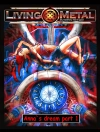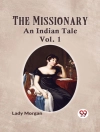‘She was a brazen hussy.’
‘She wasn’t. And she was pretty, wasn’t she?’
‘I didn’t look … And tell your girls, my son, that when they’re running after you, they’re not to come and ask your mother for you – tell them that – brazen baggages you meet at dancing classes’
The marriage of Gertrude and Walter Morel has become a battleground. Repelled by her uneducated and sometimes violent husband, delicate Gertrude devotes her life to her children, especially to her sons, William and Paul – determined they will not follow their father into working down the coal mines. But conflict is evitable when Paul seeks to escape his mother’s suffocating grasp through relationships with women his own age. Set in Lawrence’s native Nottinghamshire, Sons and Lovers is a highly autobiographical and compelling portrayal of childhood, adolescence and the clash of generations.
Giới thiệu về tác giả
David Herbert Richards Lawrence was an English writer of the 20th century, whose prolific and diverse output included novels, short stories, poems, plays, essays, travel books, paintings, translations, literary criticism and personal letters. His collected works represent an extended reflection upon the dehumanizing effects of modernity and industrialisation. In them, Lawrence confronts issues relating to emotional health and vitality, spontaneity, human sexuality and instinct.
Lawrence’s opinions earned him many enemies and he endured official persecution, censorship, and misrepresentation of his creative work throughout the second half of his life, much of which he spent in a voluntary exile he called his ‘savage pilgrimage.’ At the time of his death, his public reputation was that of a pornographer who had wasted his considerable talents. E. M. Forster, in an obituary notice, challenged this widely held view, describing him as ‘the greatest imaginative novelist of our generation.’ Later, the influential Cambridge critic F. R. Leavis championed both his artistic integrity and his moral seriousness, placing much of Lawrence’s fiction within the canonical ‘great tradition’ of the English novel. He is now generally valued as a visionary thinker and a significant representative of modernism in English literature.












